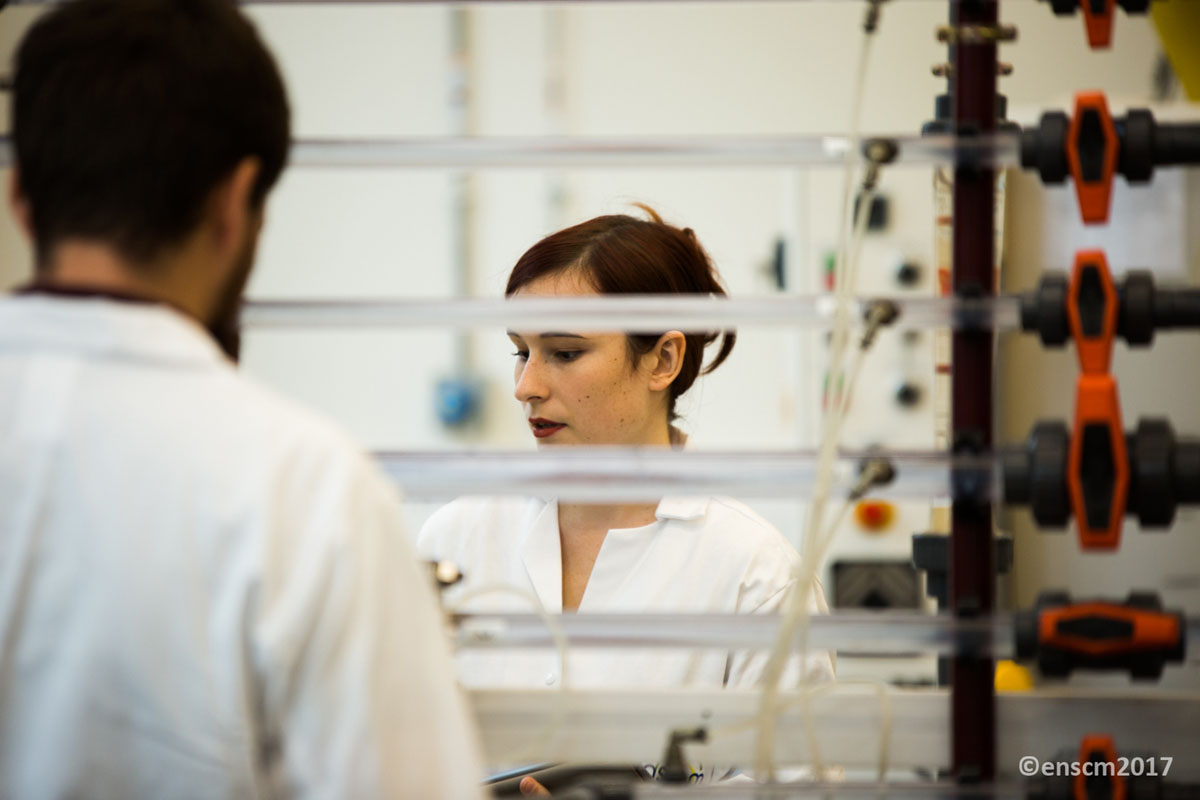Involving engineers in the ecological transition through research-based training
The three engineering schools involved in the I-SITE project "Montpellier University of Excellence":the École Nationale Supérieure de Chimie de Montpellier,the Institut Agro Montpellier, and Polytech Montpellier have chosen to join forces to boost the link between training, research, and innovation. With the Research (PRI) program, they are strengthening interactions between schools and laboratories around innovative projects focused on the issue of transitions to sustainability (" Sustainable transitions" ). To this end, they receive strong support from the MUSE project led by the University of Montpellier.
Training engineers through research is one of the best ways to educate students capable of embracing the complex issues involved in the transition to sustainability, preserving energy, natural resources, biodiversity, and the environment. It also helps them develop critical thinking skills, scientific rigor, creativity, and a taste for innovation, while cultivating the systemic vision that characterizes engineers.
By offering this format to students motivated by scientific learning, these three schools aim to guide them toward research (public or private) and innovation activities, complementing their specific engineering skills.
A Research Program (PRI)
Thus, at the start of the 2021 academic year, a one-semester program called "Parcours Research " (PRI) was opened to eight students from each school and eight international students, for a total of 32 students. This program involves the research units of the I-Site MUSE. It focuses on project-based learning supported by high-level disciplinary input and Research skills common to all students on the program. Due to its open recruitment policy, this program has a strong international focus and all courses are taught in English. Drawing on cross-disciplinary modules and events shared by students from the three schools, the PRI program aims to enable these students to meet, share common values, and exchange perspectives, with the ambition of raising their awareness of multidisciplinary approaches that respond to the major societal challenges that are naturally part of the I-Site MUSE project: Care – Nourish – Protect.
For Stéphan Brosillon, Deputy Director of Partnerships, Research, and Innovation at Polytech Montpellier (University of Montpellier), who is co-leading this project , "this program offers students a real opportunity to gain in-depth insight into research careers in a context where ecological transition is now essential for our engineers."
The PRI content is integrated into the schools' curricula, beginning with a joint orientation seminar featuring presentations by high-level international speakers and a creativity workshop. The program then focuses on two areas: subject-specific knowledge specific to each school, and a research component aimed at developing cross-disciplinary research skills, which are put into practice in group or individual research projects, depending on the institution. Engineering students are then encouraged to spend time at a foreign research laboratory within the network of international partners of the three schools.
During the PRI semester, students work on a research project proposed by a laboratory: they conduct a literature review, generate hypotheses to be tested, establish experimental protocols, acquire and analyze data, and then process the results to finally write an article in accordance with best practices and scientific integrity in research. Students submit their work to an open publication platform.
For Morgane Burq, a student at Institut Agro – Montpellier,“this program is an incredible gateway to the world of research. It’s a cosmopolitan option that provides an opportunity to meet new people, including students from various countries whose perspectives are very enriching. Working alongside other engineering students in Montpellier gives us a lot of cross-disciplinary knowledge, which stimulates creativity and therefore improves the quality of our projects."
Significant support from I-Site Montpellier University of Excellence
The implementation of this program received significant support from I-Site MUSE, led by the University of Montpellier. It was a three-time winner of the "TakeOff#3" call for projects, which supports the implementation of educational programs and promotes innovative practices. The first round of funding supported the implementation of the PRI with the backing of the I-Site MUSE Center for Support of Educational Innovation. The second provided funding for the creation of a reception facility on the campus ofInstitut Agro Montpellier. This is the HIVE (High Innovative and Versatile Environment), a multipurpose space dedicated to creativity, collaboration, and digital communication, specially designed for the PRI. The third is the creation of a co-working space at Polytech Montpellier, open to the world of research and innovation. The project is supported bythe Montpellier Institute of Data Sciences for its computing and data storage and sharing needs.
The creation of the PRI has paved the way, as part of the Investments for the Future program, for one of nine IDIL (Interdisciplinary – In Lab’ graduate program) master’s courses that will be available at UM at the start of the next academic year, thereby structuring the graduate school of Montpellier University.
